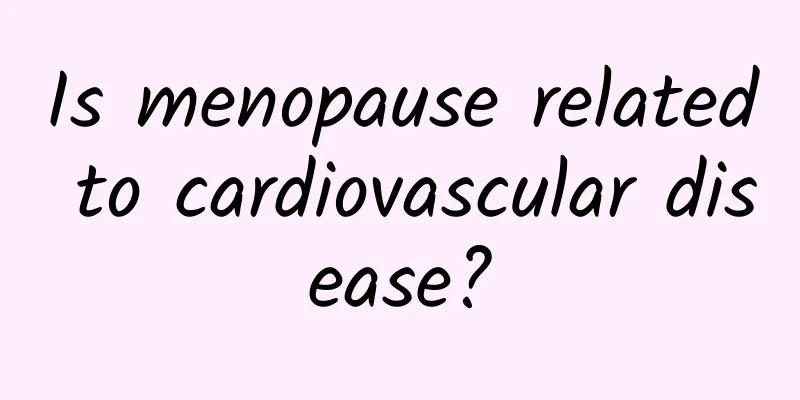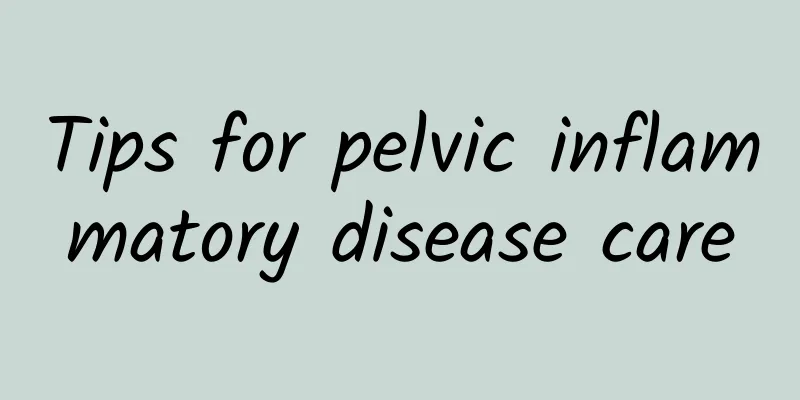Is menopause related to cardiovascular disease?

|
Menopause is indeed closely related to cardiovascular disease. After menopause, the level of estrogen in women's bodies decreases, and the reduction of this hormone directly affects cardiovascular health. 1. The protective effect of estrogen Estrogen is not only key to regulating the menstrual cycle, it also plays an important protective role in the cardiovascular system. It can reduce vascular permeability and serum cholesterol levels, thereby reducing the formation of atherosclerotic plaques. Once these plaques accumulate in blood vessels, they will lead to arteriosclerosis and increase the risk of coronary heart disease and myocardial infarction. Estrogen can also dilate blood vessels, reduce peripheral resistance, and help the heart work more efficiently. 2. Cardiovascular risks after menopause Menopause marks a significant decrease in estrogen, which leads to an increased risk of cardiovascular disease in women. This is because without the protection of estrogen, the blood vessel walls are more vulnerable to damage and the process of arteriosclerosis is accelerated. After menopause, the incidence of coronary heart disease in women will increase significantly, and the risk of myocardial infarction and arrhythmia will also increase. 3. Adjustment of lifestyle In the face of the cardiovascular risks brought by menopause, it is very important to adjust your lifestyle. Maintaining a healthy diet, consuming more fiber-rich foods, and reducing the intake of saturated fat and cholesterol can help reduce the risk of cardiovascular disease. Moderate physical exercise, such as brisk walking, swimming or yoga, can also help maintain cardiovascular health. 4. Regular health check-ups Postmenopausal women should have regular health checks to monitor blood pressure, blood sugar and cholesterol levels. These indicators can help detect potential cardiovascular problems in a timely manner and take early intervention measures. 5. Pay attention to mental health Menopause not only affects physical health, but may also have an impact on mental health. Psychological factors such as mood swings and increased stress can also have an adverse effect on cardiovascular health. Maintaining a positive attitude and seeking psychological counseling or professional help when necessary can effectively relieve psychological stress. 6. Medication and treatment options For some high-risk women, doctors may recommend medications to help control cardiovascular risk, such as antihypertensive drugs, statins, etc. In some cases, hormone replacement therapy (HRT) may be considered, but this therapy needs to be carried out under the guidance of a doctor because it also has certain risks. Menopause is a natural stage in a woman's life, but through scientific lifestyle adjustments and regular health monitoring, the risk of cardiovascular disease can be effectively reduced. Paying attention to cardiovascular health can not only improve the quality of life, but also extend the healthy life span. |
<<: I didn't eat much after the abortion but I gained weight
>>: How much harm does abortion do to women?
Recommend
Worried about weight gain and indigestion after eating rice dumplings during Dragon Boat Festival! Nutritionist: 3+4 tips for Dragon Boat Festival, eat zongzi healthily without gaining weight
The Dragon Boat Festival is coming soon. We are c...
Why is it painful to press an ovarian cyst?
Ovarian cysts are painful when pressed. This may ...
What are the causes of miscarriage?
Abortion is a nightmare that every woman does not...
What tests should be done for vulvar leukoplakia
Treatment without examination is unscientific and...
What are the treatments for acute pelvic inflammatory disease?
Pelvic inflammatory disease is a common gynecolog...
How to treat leucorrhea that is red and sticky? The cause is quite complicated
If a woman's leucorrhea is red and sticky, th...
Female syncope and shock may be symptoms of ectopic pregnancy
The symptoms of ectopic pregnancy are very danger...
For the health of the fetus, pay attention to the occurrence of ectopic pregnancy
Women should be familiar with the disease of ecto...
Experts' simple analysis of vulvar leukoplakia
Vulvar leukoplakia is a gynecological disease tha...
The weather is cold, be careful of hypoxic obesity! Famous weight loss doctor: This trick is the nemesis
The weather is freezing cold, be careful of hypox...
Can acupuncture treat irregular menstruation? It has a very good effect
Irregular menstruation can seriously affect women...
What are the types of pelvic inflammatory disease?
Pelvic inflammatory disease has a serious impact ...
Will dysmenorrhea be passed down to the next generation?
Many female friends have experienced dysmenorrhea...
A woman almost died after 1,500 needles of acupuncture and thread embedding caused suppuration
A middle-aged woman who runs a famous breakfast s...
What topical medications are commonly used to treat Bartholinitis?
Bartholinitis is a disease that usually occurs in...









